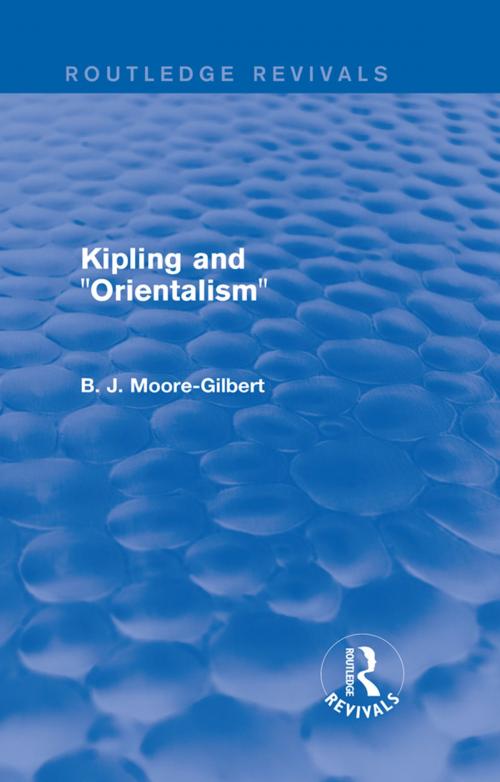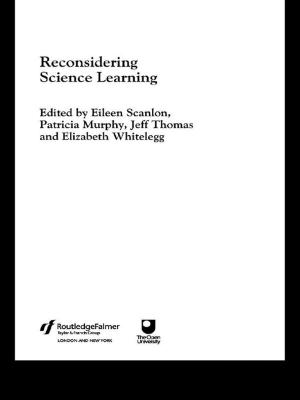Kipling and Orientalism (Routledge Revivals)
Fiction & Literature, Literary Theory & Criticism, Asian, Far Eastern| Author: | B. J. Moore-Gilbert | ISBN: | 9781317629375 |
| Publisher: | Taylor and Francis | Publication: | July 11, 2014 |
| Imprint: | Routledge | Language: | English |
| Author: | B. J. Moore-Gilbert |
| ISBN: | 9781317629375 |
| Publisher: | Taylor and Francis |
| Publication: | July 11, 2014 |
| Imprint: | Routledge |
| Language: | English |
First published in 1986, this book sets Kipling firmly in the historical context not only of contemporary India but of prior Anglo-Indian writers about India. Despite his enthusiastic reception in England as ‘revealer of the East’, in India he seems to have been regarded as just one more Anglo-Indian writer. The author demonstrates the traditionalism of Kipling’s use of the themes of Anglo-Indian fiction – themes such as the ‘White Man’s grave’, domestic instability, frustration and loneliness. In particular, Kipling is shown to be writing in a strongly conservative idiom, concentrating on the role of the British hierarchy as the determining factor in a response to India, on British insecurity and fears of a repeat of the 1857 mutiny, and regarding Indian institutions only in so far as they represented a threat to British rule. Conservative critiques of liberalism are also discussed.
First published in 1986, this book sets Kipling firmly in the historical context not only of contemporary India but of prior Anglo-Indian writers about India. Despite his enthusiastic reception in England as ‘revealer of the East’, in India he seems to have been regarded as just one more Anglo-Indian writer. The author demonstrates the traditionalism of Kipling’s use of the themes of Anglo-Indian fiction – themes such as the ‘White Man’s grave’, domestic instability, frustration and loneliness. In particular, Kipling is shown to be writing in a strongly conservative idiom, concentrating on the role of the British hierarchy as the determining factor in a response to India, on British insecurity and fears of a repeat of the 1857 mutiny, and regarding Indian institutions only in so far as they represented a threat to British rule. Conservative critiques of liberalism are also discussed.















